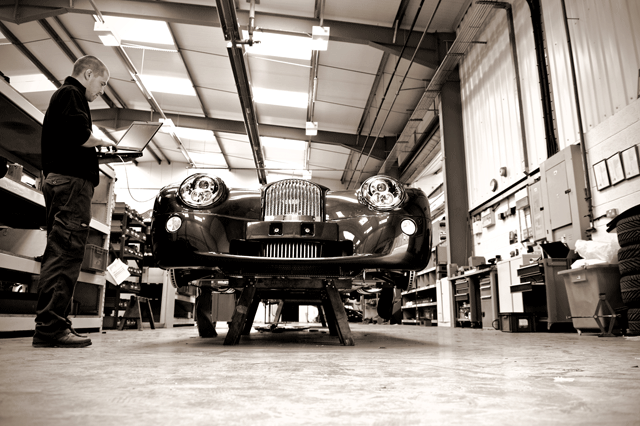Do we really need to differentiate between craft and manufacture anymore?
It was after a couple of hours drive north to Sheffield, a wander around the city centre with my colleague Stephen (and even a cheeky pint) that I found myself sat in a panel discussion at Sheffield Design Week in which a number of folks were waxing lyrical about the nature of Craft.
I’ll be perfectly honest, it’s this type of discussion that leads me to avoid design and cultural cross over events. You’ll usually find the rest of the design profession avoiding them too. What you end up with is the art establishment dissecting their own work and glorying in their own cleverness. And that never sits well.
If you look at the term, its definition is woolly at best. Various sources will have it as “activity involving skill in making things by hand” or “skills involved in carrying out one’s work” — or indeed, combinations or variations of the two. It was clear this crowd saw that Craft meant made by hand, unsullied by machine or automation.
Anyway, an hour or so in and it was apparent it was time to leave or to stay and pick an argument at the inevitable drinks reception — I chose the former, thankfully.
The following day, the MadeNorth conference (running as part of Sheffield’s week long events programme) saw a group gather at a rather splendid Art Deco cinema to listen to various speakers.
A personal highlight was listening to Dominic Wilcox. A gentle soul who produces some fascinating work and has a wicked sense of humour — it’s worth spending a few moments to check out his work (dominicwilcox.com) and his forthcoming book — Variations on Normal.
Then the academics got on stage. This is always a good place to catch a nap, but one slide got my blood boiling. It said:
“Design risks becoming soulless if craft techniques and thinking are not part of the process”
Sorry, what the ****?
Let’s consider that statement for a moment. That the body of products, produced across the world that are lovingly designed and manufactured, have no soul.
Just because they’re using modern techniques and methods of production that makes them affordable and reliable? Frankly, that’s a load of bollocks.
Take a look at the story covering Tanya Weaver’s visit to Morgan Motors. These are hand, or more specifically, coach built, vehicles and that’s done, in many regards, by hand. But the company also buys in components and uses technology to ensure its products are safe and reliable.

Morgan’s factory in Malvern is a place of absolute wonder
Does that mean, somehow, that they have no soul, that the folks that work on these vehicles have no emotional attachment to the process or that somehow, this has less worth in terms of their place in the world?
No. And to pretend otherwise is elitist and rather arrogant.
Don’t misunderstand me
Don’t misconstrue this as a reaction against the craft movement. Some of my favourite objects are handmade. It might be a belt I knocked together a couple of summers ago that’s ageing nicely, gathering that patina of use and wear that only comes with time.
Or a razor sharp pocket knife with its hand crafted wooden handle that feels just right in the hand. But do I love these more than a good example of mass produced, well executed design? Probably not.
One detail on a common and familiar product is the bottom edge of the iPhone 5. There’s something about the way that the design is laid out, the speaker and mic holes are arranged and the way that the glass and aluminium fit together around the power socket.
I could look at that for days on end. And it’s mass produced in the millions. They’re all the same, they’re all produced to exacting standards. And they couldn’t be made by hand without the already high cost going through the roof.
So, the point is?
A well designed and executed product is just that. Do we really need to differentiate between craft and manufacture anymore? There are tools available for automation that can create beautiful objects that customers love.
Surely that’s what we should be advocating and celebrating?

Modern techniques produce goods that are affordable, reliable and, yes, beautiful
Default






